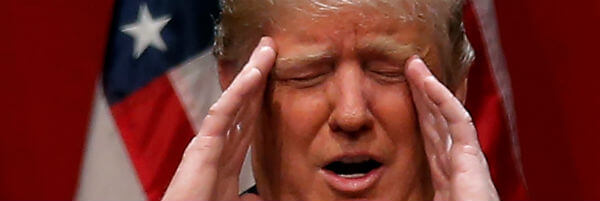In and of itself, the horrendous attack in Berlin was a meaningless act of violence carried out by a callous criminal. He left identification papers at the scene of the crime, possibly a ruse to throw investigators off the trail, but just as likely evidence that he’s an idiot.
Was this an event of such significance and such magnitude that it should alter the destiny of a nation? That’s for Germans to decide. Hopefully they will retain the best marker of sanity: a sense of proportion.
If only the same could be said of the media and politicians. Most likely they will continue to demonstrate their willingness to be manipulated by extremism, all the more so because extremists are already gaining a foothold inside the political system.
Whenever an act of terrorism takes place, there is a real need to make sense of what just happened. Understandably, there is an urgent desire to prevent such events recurring, along with a sense of frustration that literally ending terrorism is an unachievable goal.
A poorly conceived effort to make sense of terrorism more than terrorism itself is what has had an enduring impact on societies and reshaped the world over the last two decades.
During that period, Islamophobia in the West has grown relentlessly and over the last two years that fear has increasingly focused on refugees.
German Chancellor Angela Merkel, acutely aware that her political opponents would have no hesitation in blaming the Berlin attack on her immigration and security policies, addressed the issue of refugees in a statement she made about the attack yesterday:
It would, she said, be “particularly difficult for all of us to tolerate” a situation in which the perpetrator had come to Germany as a refugee.” It would be, she continued, “particularly repulsive with respect to the many, many Germans who are engaged daily in providing assistance to refugees and with respect to the many people who really need our protection and who are doing their best to integrate.”
At that time, a suspect was under arrest who was indeed a refugee.
It turned out that the fact of this arrest was not evidence of a rapidly progressing investigation but more likely an indication of the fact that increasingly in Germany and elsewhere, refugees are viewed with suspicion.
The irony, of course, is that a large proportion of these refugees have come to the West in order to escape violence perpetrated by groups such as ISIS, Al Qaeda, the Taliban, Al Shabaab, and Boko Haram.
As Donald Trump enters office, he and leading members of his administration have insisted that they won’t be afraid of using the phrase Islamic terrorism. His answer to what he views as Barack Obama’s anemic security policies is to try and make Americans focus more strongly on Islam when they react to terrorism.
But what the attacks in Europe over the last year or so have revealed much more clearly is an alignment not between Islam and terrorism but between criminality and jihadism.
In the latest issue of the journal, Perspectives on Terrorism, Rajan Basra & Peter R. Neumann write:
On the morning of Wednesday, 31 August 2016, two plain-clothed police officers approached a suspected drug dealer in Christiana, an alternative life-style district in Copenhagen, Denmark. Without warning, the man opened fire at the police with a pistol and ran away. He was eventually tracked down and died from wounds that he received during a police shootout. His name was Mesa Hodzic, a 25-year old Danish-Bosnian, who was known to the police as a drug dealer. Two days later, the jihadist group Islamic State (IS aka ISIS, ISIL or Daesh) claimed responsibility for Hodzic’s actions, proclaiming him a ‘soldier’ of the Caliphate. It turned out that Hodzic was not just a prolific drug dealer, but also a member of a Salafist group who had expressed sympathies for the Islamic State and appeared in its propaganda videos. At first, this appeared like a flagrant contradiction. Were jihadists not meant to be religious, and refrain from drug peddling and ‘ordinary’ crime? Yet his case demonstrates how blurred the lines between crime and extremism have become. Was he a criminal, a terrorist, or both?
Mesa Hodzic was not a unique case. German Federal Police stated that of the 669 German foreign fighters about whom they had sufficient information, two-thirds had police records prior to travelling to Syria, and one-third had criminal convictions. The Belgian Federal Prosecutor said that approximately half of his country’s jihadists had criminal records prior to leaving for Syria. A United Nations report suggests a similar pattern amongst French foreign fighters. Officials from Norway and the Netherlands told us that ‘at least 60 per cent’ of their countries’ jihadists had previously been involved in crime. It is for this reason that Alain Grignard, the head of Brussels Federal Police, described Islamic State as ‘a sort of super-gang’.
Instead of drumming up fear of refugees and an Islamic threat, the evidence is already clear of a discernible path leading from petty crime to spectacular violence.
The worst we can do now is reward those who try and glorify their miserable lives and drench themselves in the blood of other, by ascribing to their actions some religious significance.
Stay informed. Click below to sign up for daily email updates from War in Context:



